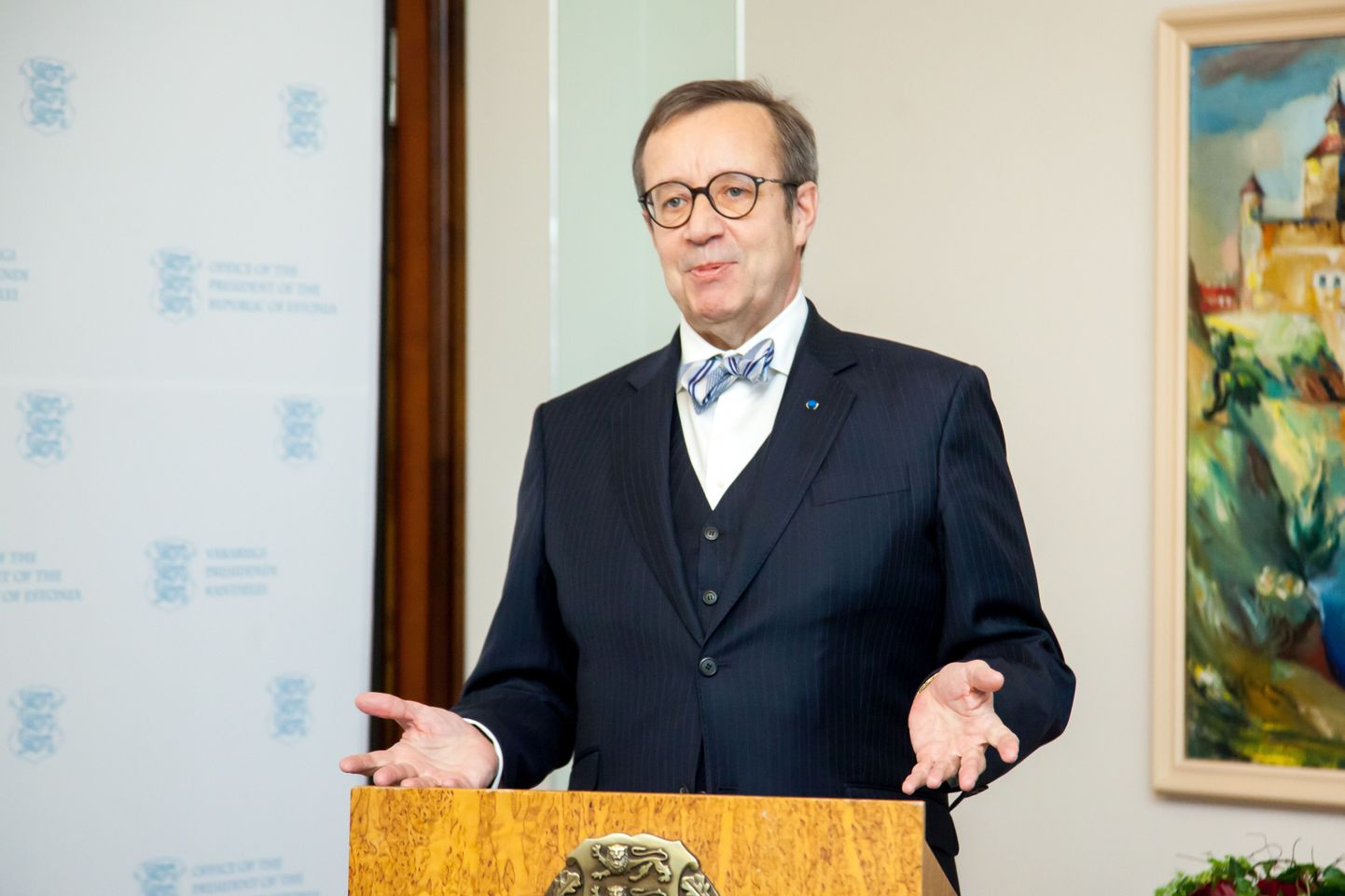
Having proclaimed the laws passed last week as tied to confidence concerning government, President Toomas Hendrik Ilves underlined the debate was not worthy of democratic parliamentary public order.

Having proclaimed the laws passed last week as tied to confidence concerning government, President Toomas Hendrik Ilves underlined the debate was not worthy of democratic parliamentary public order.
«The debate regarding the bills in Riigikogu where the government linked their passing to issue of confidence was not a move worthy of democratic parliamentary public order,» the President said when requested by Postimees and Eesti Päevaleht to comment on the way tax laws were amended in Riigikogu.
Mr Ilves referred back to his 2009 Independence Day speech wherein he said that the government’s desire, no matter the economic crisis, to take tough and fast decisions did not free them from the responsibility to respect parliamentarian principles. Even then, while discussing budget cuts in Riigikogu, the government made it an issue of confidence towards them.
«I am disappointed that now – with no economic crisis nor other extraordinary circumstances to cite – I must necessarily repeat these very words. I will continue to defend the principle that the opposition must retain the option to use all means fitting to a parliamentarian state to make its stands known and to defend them,» noted Mr Ilves.
Mr Ilves went on to say that the desire of governmental parties to quickly turn their election promises into law may not serve as excuse to significantly curb the parliamentary debate. «Meanwhile, the President’s decision to proclaim or refuse to proclaim a law may only be based on whether or not the law is constitutional,» he observed.
Reform Party chief and Prime Minister Taavi Rõivas reacted to presidential criticism via Twitter, deeming it important for the sake of facts to underline that instead of 40 hours of breaks 11 hours of questions and answers had now occurred. «A real debate,» he tweeted.
In Estonia, it is only thrice that a government has tied the passing of bills to issue of confidence. The first time it happened was in 2009 when budget cuts were needed because of the economic crisis.
At the Anniversary of the Republic that very year, Mr Ilves pointed out that it is only at very exceptional occasions that bills may be linked to issue of confidence.
«The threats Estonia is faced with are not only economic. The need to take tough and fast decisions will not free anyone from the obligation to maintain Estonian democratic parliamentary public order. An economic crisis may not stop Estonian constitution from being valid. The fact that we have less money may not bring any derogations regarding transparency of decisions,» he said.
The second time the option was used was with Mr Rõivas already in power, at end of June last year. And the third time occurred the last week but one with bills of tax amendment, child benefit rise and low-waged tax refund principles which were all passed on July 15th.
Pursuant to commented edition of Riigikogu Rules of Procedure and Internal Rules Act, the option of linking the passing of some bills to issue of confidence is mostly meant for use by minority government who would otherwise have difficulty pursuing their policy, or in crisis situations where a government may need to overcome differences among members of parliament within the majority.